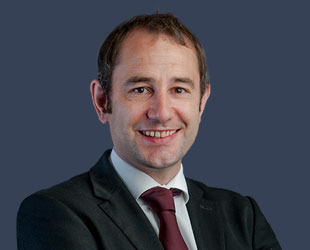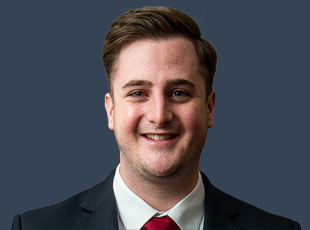- Swansea (Main)01792 773 773
- Caerphilly02920 860 628
- Cardiff02920 225 472
- Carmarthen01267 234 022
- Cowbridge01446 771 742
- Haverfordwest01437 764 723
- Rural Practice01267 266 944
- St Davids01348873671
- Please note that all phone calls are recorded
GP Negligence Solicitors
General Practitioners (GPs) have the vital job of usually being our first and main point of contact when we have a health concern. We rely on them to treat and manage medical symptoms as well as refer us to hospitals or other medical services for specialist or urgent treatment.
We respect and value our GPs who work hard to take care of us, especially as General Practice is experiencing a significant strain. The demand for GP appointments has increased and the caseload has become more complex. Many GPs are leaving the role, and fewer doctors are looking after a greater number of patients. The Covid pandemic has exacerbated the pressure. Whilst our GPs usually provide us with positive results, unfortunately, things can go wrong.
We understand that it can be particularly difficult when you think something has gone wrong in the service provided by your GP, as you and your family may have had an ongoing relationship with your GP practice for a long time.
What are the signs of GP negligence?
Your GP is under a duty of care to safeguard you from harm while you are in their care. If a GP has not managed to do this, they may have breached this duty of care.
You may have reason to believe that your GP has breached this duty of care, for example, if:
- You were not referred to a specialist when you should have been
- You have not been referred to a specialist when you have attended the GP on multiple occasions with the same symptoms which are not going away
- You were referred to a specialist, but the referral should have been made urgently
- You were not referred for tests, for example, blood tests, when you should have been
- You have not been diagnosed and therefore haven’t received the treatment you need
- You have been incorrectly diagnosed
- The treatment you received was not the right treatment for your diagnosis
- Your required treatment has been delayed
When might I have a medical negligence case against a GP?
You must satisfy a two-stage test to have a case:
- Firstly, it must be proved that the treatment you received was below an acceptable standard, i.e. no other GPs would have made the same errors under the circumstances. Lawyers call this breach of duty.
- Secondly, it must be proven that as a direct consequence of this, you suffered from an injury, illness or worsening of an existing medical condition. Lawyers call this causation.
If we have evidence which supports both of these points, it is possible to bring a negligence claim against a GP and claim for compensation.
-
- Nick O'Neill
- Director - Medical Negligence
-
- Matthew Owen
- Director & Head of Medical Negligence
-
- Lauren Protheroe
- Director - Medical Negligence
-
- Thomas Rees
- Director - Medical Negligence
-
- Keith Thomas
- Director & Head of Birth Injury
-
- Samuel Barnes
- Associate Solicitor - Medical Negligence
-
- Marnie Novis
- Associate Solicitor - Medical Negligence
-
- Alison Deere
- Legal Assistant - Clinical Negligence
-
- Ellie Sayce
- Legal Assistant - Medical Negligence
-
- Cheryl Smith
- Legal Secretary - Personal Injury
How do I claim compensation for negligence against a GP?
Our team of experts will guide you through the process of claiming compensation for negligence against a GP.
Every case is unique, but how we can bring a claim for compensation for GP negligence can be summarised below:
You will make an enquiry with us regarding what happened to you and why you believe it was a result of GP negligence. We will consider whether we are able to help you to bring a claim.
We will provide you with all of the information regarding funding a claim and what you can expect from the process.
We will, with your consent, acquire all of your medical records from the relevant health services.
We will instruct an expert in the relevant medical field to provide their opinion on whether the care you received was negligent. We may need multiple experts in different medical fields. The experts will report on the two-stage test: whether the treatment you received was substandard, and whether the substandard treatment caused you harm. The experts will be able to set out what should have happened, and what your likely condition would have been had the treatment been of an acceptable standard. They will also assess the likely future of your health.
We will present our arguments to the responsible healthcare provider of the GP, who will gather their own evidence. If they accept liability, we will look to negotiate a settlement, i.e. compensation.
It may be necessary to issue court proceedings. This does not mean that the case will go to trial, and it is more likely that we will be able to settle at an earlier stage. We will work hard to secure the compensation you need.
We will keep you fully informed and provide you with support throughout the process.
How much compensation can I get for a GP negligence claim?
The aim of compensation is to financially put you in the position you would have been in had it not been for medical negligence. How much compensation you can get will depend on the type and amount of harm you have suffered as a result of GP negligence. How your life has changed since you suffered from negligence will be carefully considered.
Examples of factors which will be taken into consideration are:
- The type of injury or harm suffered
- Your prognosis and if you are likely to get better in the future
- Whether the harm suffered has impacted your ability to work
- Whether the harm suffered has impacted your ability to look after dependents
- Whether the harm suffered has impacted your ability to do household work
- Whether the harm suffered has impacted your ability to take part in activities or hobbies which you previously enjoyed
- The period of pain and suffering which you have endured as a result of medical negligence
- Expenses made as a result of the harm suffered eg. specialist equipment or adjustments to your house
What is the time limit to claim for GP negligence?
The time limit for bringing a claim for GP negligence is three years from the date on which you became aware that you have suffered significant injury as a result of medical treatment.
In the case of a minor, the three-year rule starts on the child’s 18th birthday, meaning the time limit is when the child reaches 21.
In fatal cases, the time limit is generally three years from the date of death.
If you are bringing a claim for someone who does not have the mental capacity to instruct a solicitor in a medical negligence case and has not had such mental capacity since the injury caused by negligence, then the time limit will not begin unless the person regains mental capacity. If there is any doubt as to whether the person has capacity, it is best to assume that they do, as the law requires us to do so until proven otherwise.
It is very important that you are aware of the time limits in your case, as you will not be able to bring a claim outside of the time limits. We encourage you to get in touch with us as soon as you can and we will be able to advise you on the likely time limit which will apply to your claim.
How do no win no fee claims work for GP negligence?
We fund the majority of our claims using a Conditional Fee Agreement, commonly known as a ‘No win, No Fee’ agreement.
This means that if we do not have supportive evidence and your claim has to be abandoned, there will be no charge to you for any expenses or legal fees.
If the claim is successful and you are awarded compensation, it will be subject to certain charges which will be deducted from the compensation.
You will be fully informed of the funding agreement and there will be no hidden charges.
Contact us
If you think you may have suffered from medical negligence, or if you are unsure if you have a case, you can contact our team of specialists today using the form to the right, email us on law@jcpsolicitors.co.uk or call us on 03333 209244.
We will take the details of your experience and fully consider whether we are able to help you by way of a free consultation.










